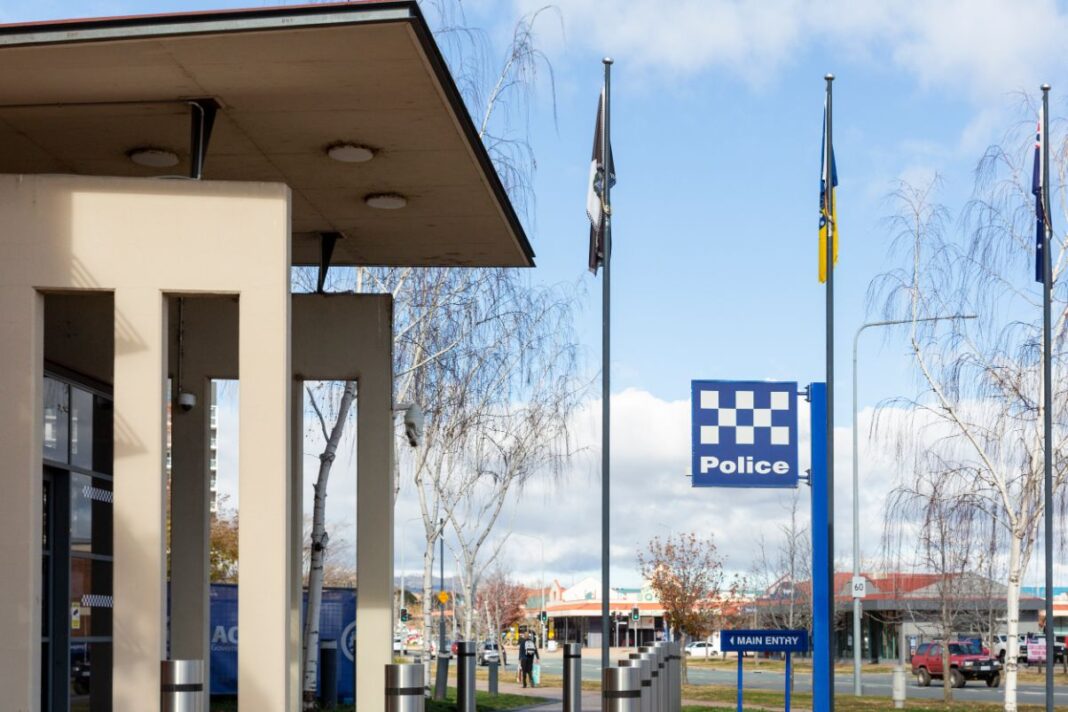Police and politicians have welcomed the Commonwealth and ACT Ombudsman’s Report into ACT Policing’s administrative framework for engagement with the ACT Aboriginal and Torres Strait Islander community, released today.
The Ombudsman’s office investigated whether ACT Policing‘s administrative and governance arrangements concerning Indigenous Canberrans – programs, policies, procedures, and training – were appropriate and well administered.
The Ombudsman, who manages complaints about unfair treatment by government agencies, received 70 complaints about inappropriate action (including inadequate investigation or failure to investigate), customer service or insensitivity, officer misconduct, and policy, procedure, practice, or regulations in the 2019–20 financial year, an Ombudsman spokesperson said.
The Ombudsman was prompted to investigate in response to both complaints and feedback from the ACT Aboriginal and Torres Strait Islander community.
Indigenous people were over-represented in the criminal justice system, Ombudsman Michael Manthorpe said. Although only 1.9% of the ACT population, Aboriginals and Torres Strait Islanders are 24% of prisoners, and 19 times more likely to be imprisoned than non-Indigenous people, according to the Productivity Commission’s Report on Government Services.
Moreover, in the 2019–20 Budget, the ACT Government announced $33.9 million to transition police to a new model, intended to better engage with vulnerable Canberrans, including Indigenous people.
Mr Manthorpe noted in his Report that although there were many “examples of excellent and respectful community engagement”, Indigenous Canberrans had also complained about “poor practice”.
The Report made nine recommendations which Mr Manthorpe believes will build “mutually respectful and beneficial relationships” with Indigenous Canberrans and build institutional trust in the police.
The recommendations include: an overarching strategic plan to bring together new Police Services Model objectives, community policing programs, and related commitments to justice targets; standard operating procedures to facilitate Indigenous access to community diversionary and support programs; and cultural training.
The Report calls for the police to work with Indigenous Canberrans to design, deliver and evaluate community policing and engagement activities.
“Meaningful consultation with the ACT Aboriginal and Torres Strait Islander Community is a crucial preliminary step towards embedding trust and ensuring solutions are, where possible, jointly owned by ACT Policing and the community,” Mr Manthorpe said.
There was, he noted in his Report, “a deep animosity and often hatred” between police and Aboriginal people. “Addressing this mistrust will be a long journey, requiring public commitments and demonstrated action over many years.”
Neil Gaughan, Chief Police Officer of the ACT, has agreed to these recommendations (if only partly in some cases). He said the police would work closely with Indigenous Canberrans to address the recommendations.
“I acknowledge that ACT Policing engagement with our Aboriginal and Torres Strait Islander community can always be improved,” Mr Gaughan said.
Mr Manthorpe said he was pleased ACT and Federal Police had agreed to act on the recommendations, in consultation with Indigenous Canberrans.
The police will recruit a third Aboriginal Liaison Officer to provide culturally appropriate support and to help police work with families at risk, Mr Gaughan said. To divert Indigenous people from the justice system, the police last year piloted a wrap-around service to family violence victims and offenders; findings will be used to set up a Vulnerable Persons’ Hub.
ACT Minister for Police and Emergency Services, and for Corrections, Mick Gentleman, said the government remained committed to ensuring close consultation between the police and the Indigenous community – including programs to better support people who came to the attention of the police.
To address the incarceration issue, Mr Gentleman said an independent review led by ATSI people will investigate over-representation in the ACT justice system, which may include systemic racism.
Elizabeth Kikkert, Shadow Minister for Aboriginal and Torres Strait Islander Affairs, encouraged the ACT Government to support the implementation of the nine recommendations.
“For example, ACT Policing’s ability to meet recommended justice targets depends on the government’s commitment to expand existing restorative justice options or create new diversionary programs,” she said.
To illustrate what is needed in just one area, Ms Kikkert stated, Volume 2 of the Ombudsman’s report highlights the Canberra Police Community Youth Club’s role as a diversionary program for young Aboriginals and Torres Strait Islanders, but according to the Canberra Times last year, the PCYC already had more than 200 young people on waiting lists for its programs.
“Taken seriously, these recommendations will go far in building trust whilst also addressing the overrepresentation of Indigenous Canberrans in our justice system,” Ms Kikkert said.
Dr Emma Campbell, CEO of the ACT Council of Social Service (ACTCOSS), said the report highlights major procedural gaps.
“The lack of strategic direction, procedural guidelines, or reporting parameters for engagement with Aboriginal and/or Torres Strait Islander communities indicates a systemic failure to serve these communities fairly and appropriately,” she said.
ACT Policing’s failure to systematically collect and analyse data on Indigenous identification prevented assessment of unconscious bias or over-policing, Dr Campbell argued.
“While the causes of overrepresentation of Aboriginal and/or Torres Strait Islander peoples in the justice system are complex, policing attitudes and approaches are a contributing factor.
Dr Campbell urged ACT Policing to accept all recommendations in the report and urgently implement them. “The Ombudsman’s report shows how much more needs to be done to eradicate racism and discrimination from our justice system.”
The report is presented in two volumes. Volume One presents the Ombudsman’s high-level findings and recommendations, and includes ACT Policing’s response. Volume Two examines ACT Policing’s community policing activities and community engagement initiatives in greater detail, and provides suggestions for improvement.
The report can be found on the Commonwealth and ACT Ombudsman websites.
For more news:



